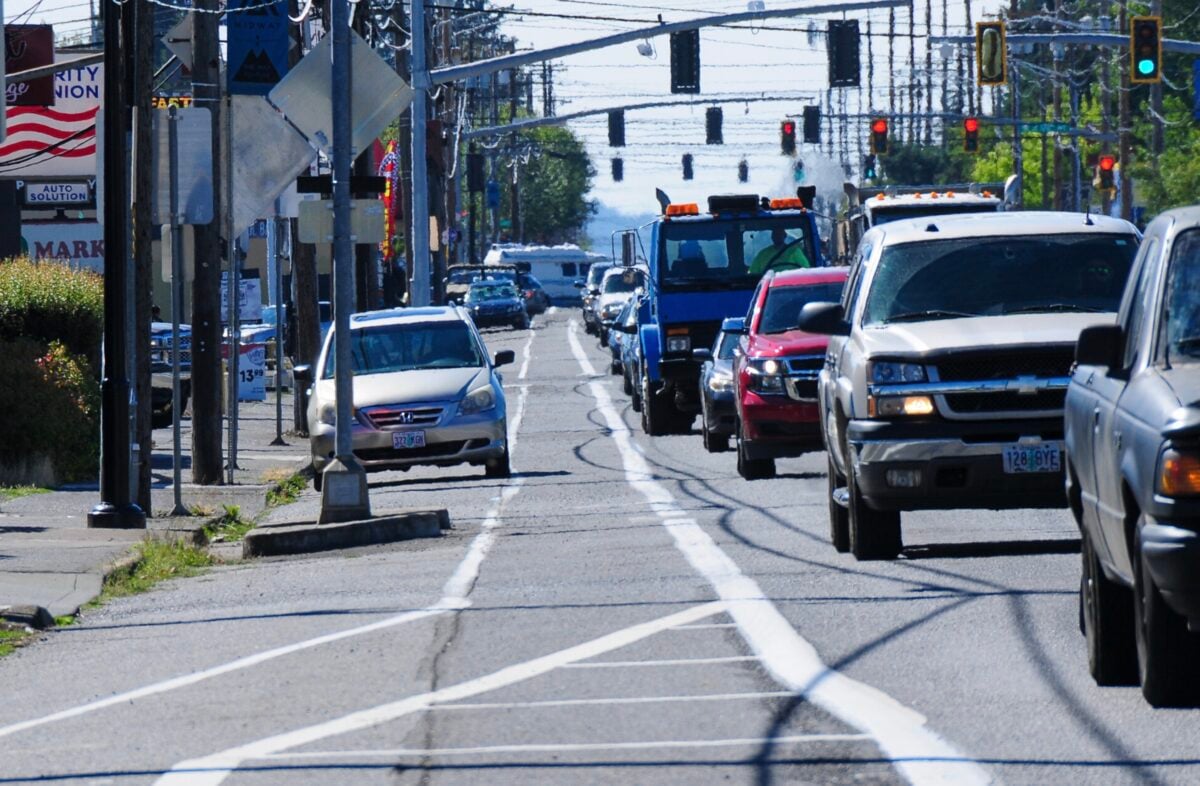
(Photos: Jonathan Maus/BikePortland)
2020 was a horrible year on Portland roads. Depending on how you count*, somewhere between 54 and 58 people died on our streets. 34 of the 56 people on our list of fatalities were not inside a car when they were killed: Five bicycle riders, eight motorcycle riders, 19 people on foot, and two people who were asleep adjacent to the roadway.
This is a crisis, yet I worry we have become complacent to the carnage. In order to end this nightmare we must accept responsibility and build the urgency required to do more, faster. Unfortunately, the agency in charge of keeping our roads safe has been more interested in protecting their reputation than protecting our lives.
Advertisement
On January 6th, the Portland Bureau of Transportation released a statement about the 2020 traffic toll. The headline read: “PBOT urges public to focus on wellness, caution as Portland sees a 24-year high number of people die in traffic crashes.” I was shocked when I read this — not because of the historic number but because it sounded like nothing more than “thoughts and prayers”.
PBOT filled the statement with a number of excuses about why so many people died: “Excessive speed and impairment,” “Alcohol consumption, as well as rates of anxiety and depression,” “Covid-19,” “Risky driving behavior,” “People driving are fatally crashing into fixed objects.” A PBOT spokesperson told The Oregonian that the steep 2020 tally, “Actually represents a decline in the death rate on our streets,” because our population has gone up so much in the past two decades.
This is an attempt to sanitize bad news. Besides that, the more important metric is vehicle miles traveled (not population growth), which was actually way down this year due to the pandemic, making the high death toll — and disrespectful PR spin — even more unacceptable.
Advertisement
Former PBOT Commissioner Chloe Eudaly was asked by Oregon Public Broadcasting in late December to reflect on her time as bureau leader. “I know people like to criticize Vision Zero and think that it’s a failed program because we haven’t seen a dramatic reduction in traffic fatalities,” Eudaly responded. “But half of our fatalities are happening on ODOT facilities. We have no control over those roadways.” This claim not only deflects responsibility, it’s also false. According to PBOT’s own analysis, over the past five years an average of 34% of Portland traffic deaths happened on state-owned roads.
This is not the right tone and not the type of leadership we need from a city that has adopted Vision Zero.
Vision Zero means zero excuses. It means accepting responsibility and a commitment to the difficult, systemic changes necessary to prevent people from dying — even when they behave recklessly. Transportation departments have a long history of blaming human behavior for road deaths. They want to have it both ways: At ribbon-cuttings they tell us road designs change behaviors, but when the bodies pile up suddenly there’s just nothing they can do to prevent it.
When I shared PBOT’s year-end statement with Leah Shahum, executive director of Vision Zero Network (of which PBOT is a member), she gave credit to PBOT for their safety work, “But given the overall troubling and tragic numbers of traffic deaths and severe injuries citywide,” Shahum said, “it seems clear that this approach to prioritize safety over speed needs to be spread fully and systematically across the city to make life-saving changes… safe mobility for all will take a paradigm shift.”
Advertisement
10 years ago, long before Vision Zero came to town, things felt much different around this issue. We were hitting record low numbers of traffic fatalities and we had a mayor and PBOT commissioner who unequivocally prioritized traffic safety. Anyone remember the annual Transportation Safety Summit? These were important events that had a positive impact on the community and traffic culture in general. We should bring them back.
PBOT is doing some good things from a policy and project perspective. But it’s not nearly enough. As climate change activist Bill McKibben wrote in 2017, “Winning slowly is the same as losing”. When we win slowly in traffic safety work, more people die.
We are scared to walk and bike on our roads. We are grieving the loss of loved ones. We want progress, not excuses.
*Not all deaths that happen on the street are technically considered “traffic deaths” according to federal definitions, which is why my number (56) differs from the City of Portland (54) and the Portland Police Bureau (58).
— Jonathan Maus: (503) 706-8804, @jonathan_maus on Twitter and jonathan@bikeportland.org
— Get our headlines delivered to your inbox.
— Support this independent community media outlet with a one-time contribution or monthly subscription.



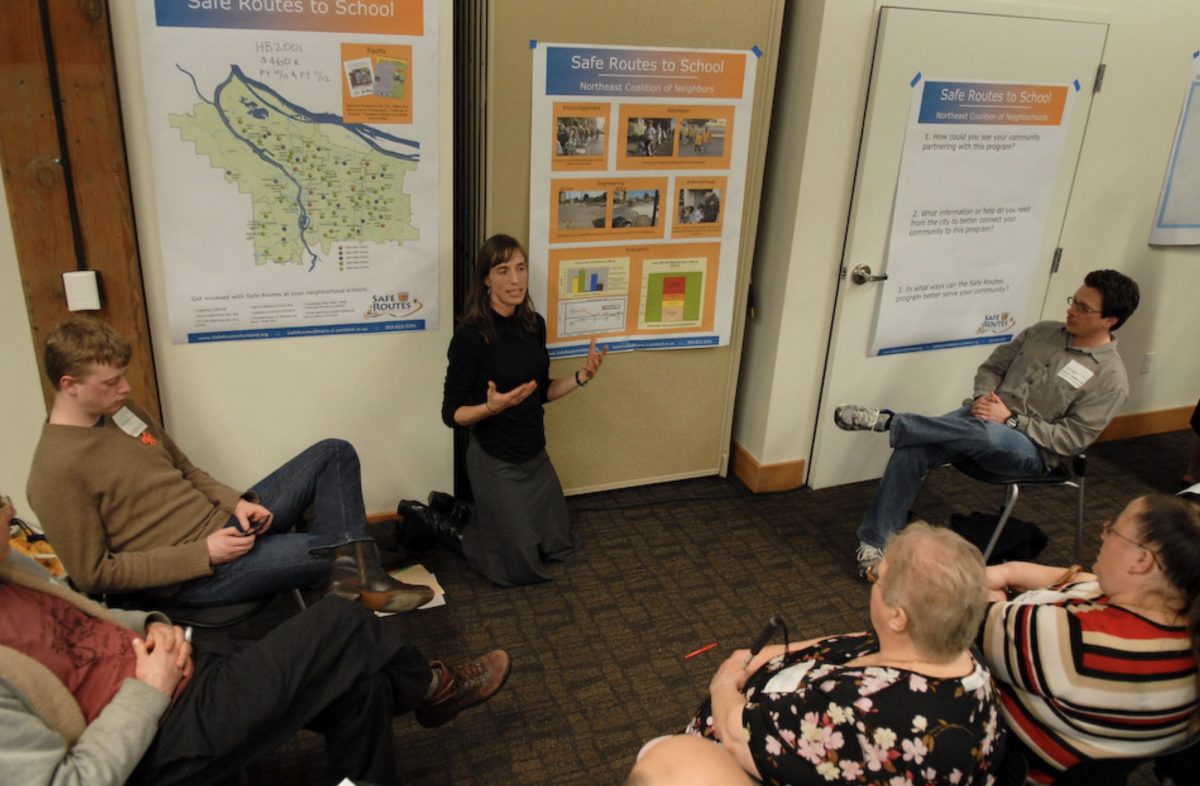
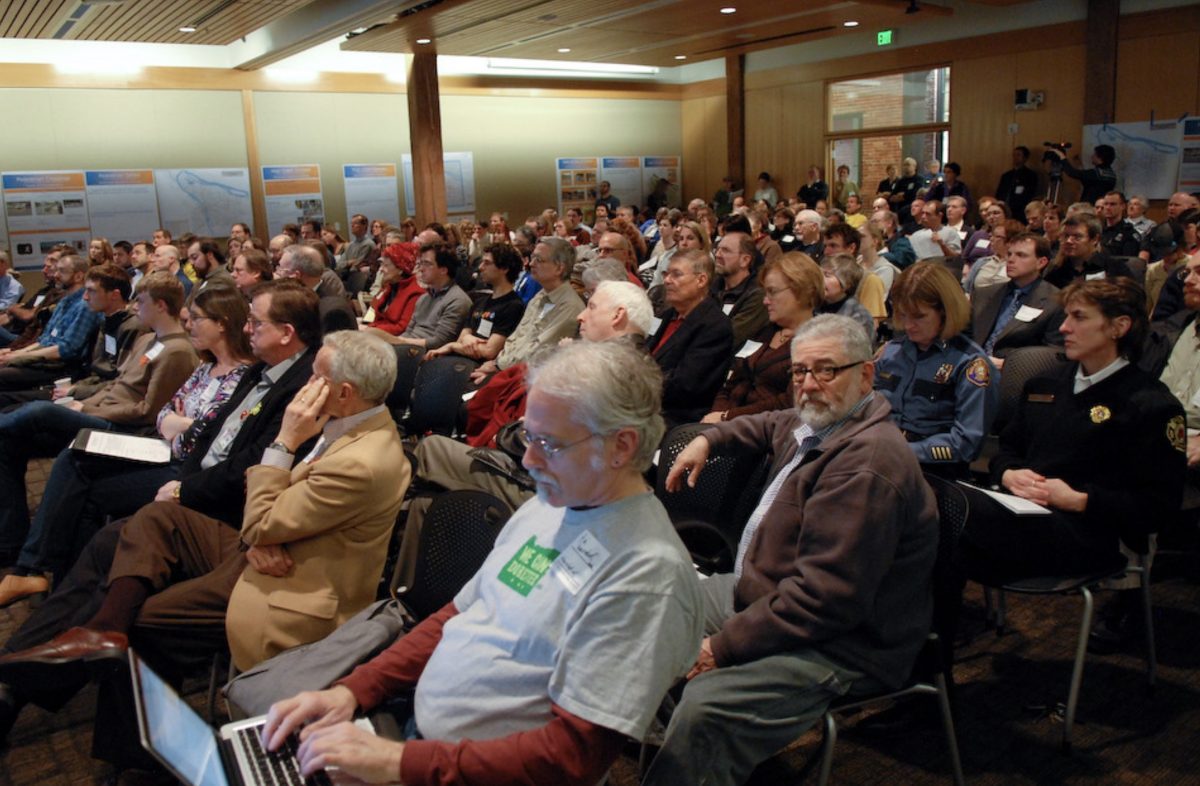
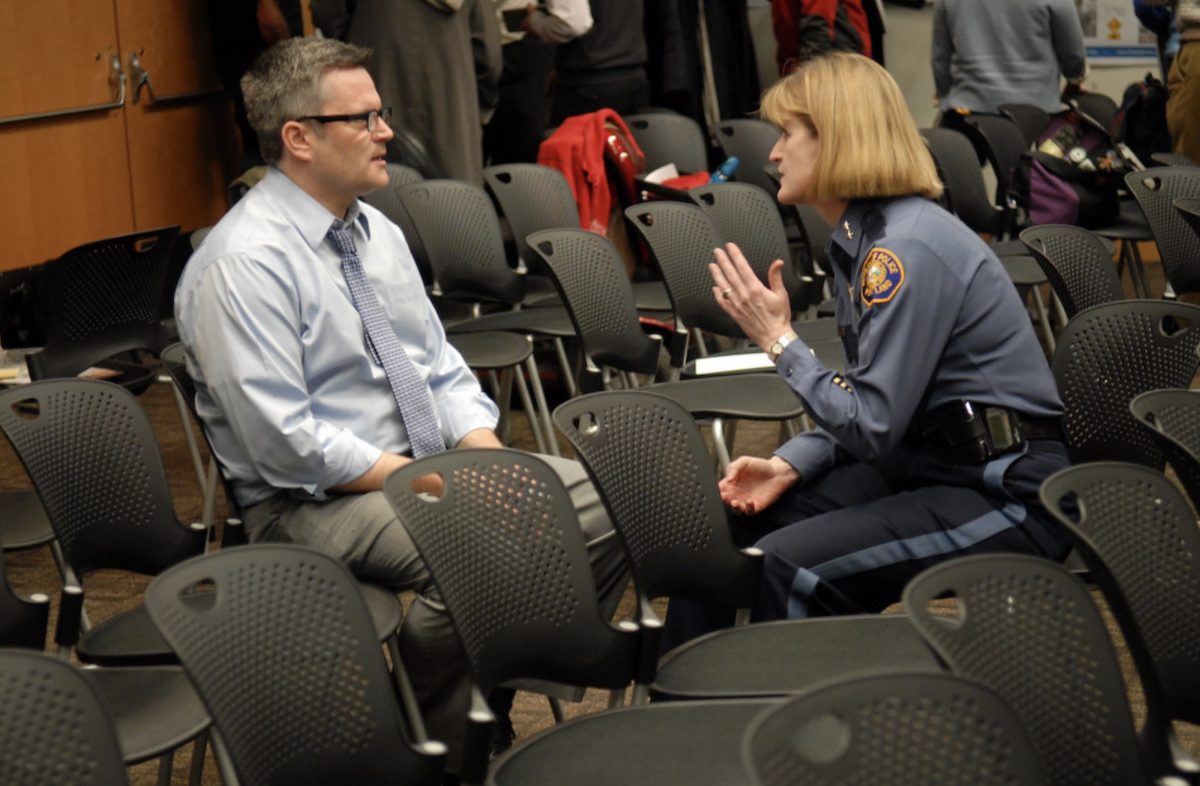
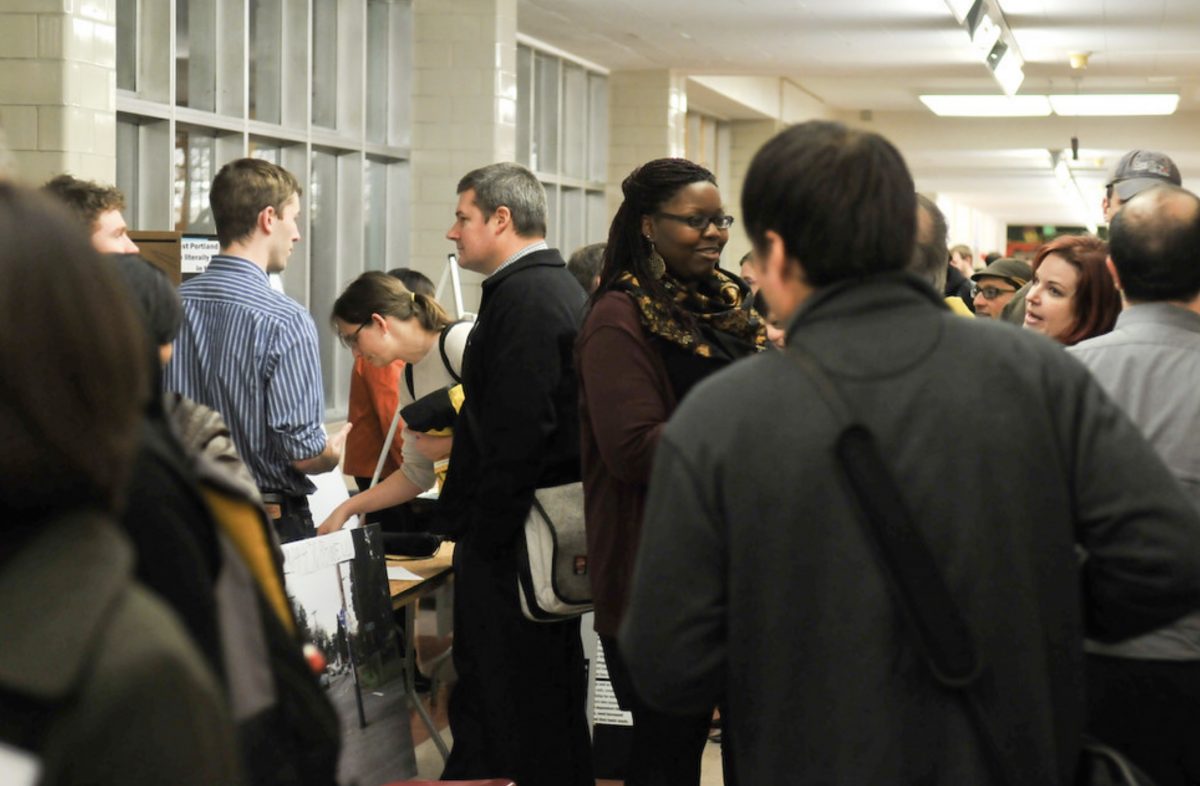
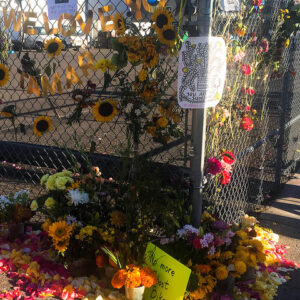

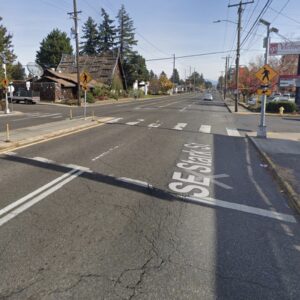

Thanks for reading.
BikePortland has served this community with independent community journalism since 2005. We rely on subscriptions from readers like you to survive. Your financial support is vital in keeping this valuable resource alive and well.
Please subscribe today to strengthen and expand our work.
I will start believing PBOT actually embodies and cares about Vision Zero when employees driving city vehicles with Vision Zero stickers on them start driving the speed limit. Until then its nothing but a hollow marketing gimmick. Because if they cannot even follow the laws when driving themselves, in PBOT vehicles, they will never do it when planning and in other capacities.
This week I had to tell a City Fire Marshall (spends all day doing safety inspections) to move his car with its orange Vision Zero sticker off the sidewalk he parked on. Next to the sidewalk he was blocking was a totally empty parking lot.
There’s rules for us citizens, and rules for City employees and elected officials.
At least he did not erect an illegal structure and then create a monumental pile of garbage for someone else to take care of. Sidewalks? Get it? SideWALKS!
Garbage and human waste are never safe.
Zero Camping in public spaces now.
And yet many Portlanders will pat themselves on the back and say allowing people to live like that is “compassion”.
Interesting Fact: In NYC houseless in shelters are required to save 30% of their income (yes many have income) for permanent shelter.
Also, NYC can enforce no camping laws as they have enough emergency shelter beds. We need to spend our money to have basic emergency shelters available. Here in Portland instead of spending money to ensure enough emergency shelter beds (so we can enforce no camping laws) we intend choose to spend lavishly on platinum level permanent housing. Although it would be super nice to offer private apartments to everyone for free it’s just not realistic. Let’s meet people’s basic needs and also allow the rest of us to use our sidewalks without stepping on a drug needle or feces.
https://www1.nyc.gov/site/dhs/shelter/shelter.page
https://ny.curbed.com/2019/8/23/20829616/homeless-shelters-nyc-savings-program
Yes! Thank you for the links.
Follow the money . . .
Simple, quick to put up, barracks style buildings for shelter doesn’t make the construction companies enough profit. Over the top “low income” housing does. Of course people with no income can’t stay in those places and usually the “low income” part is only a small % of the total units thus still enough profit when supplemented by tax payer money.
I don’t really understand this assessment, which doesn’t at all comport with human nature. The whole idea behind sound transportation planning and engineering is that counting on good individual behavior is a mistake. Even people who really care about transporation safety can have bad individual behaviors on the road, but then, when they have the time and space to lend their expertise, can support policies that are designed to mitigate those behaviors. Just an individual may take every tax deduction available to them, yet still vote for higher taxes to fund programs they support and see as just.
totally agree with this take. I try my best to abide by all traffic rules and limits but ultimately im not perfect and a design that reinforces safety is far better. Narrow traffic lanes, bumps, and slight turns all make me actually slow down If i’m on a wide suburban road that feels like i can drive 40 mph easily than its going to happen.
Not a surprise that PBOT gave a report full of excuses considering it has been headed by the demagogue Chloe Eudaly until the 1st of this year. Unfortunately, I expect we will see more of the same with the incoming director JoAnn Hardesty.
With any luck Hardesty will make it out for another ribbon cutting on a new beg button like Eudaly did.
Maybe not wish for that. Wasn’t it a just a few months after that Eudaly photo op that a person was killed about a block or 2 away crossing the street?
I hate to say it, but 2021 is likely to be another bad year. I see nothing on the horizon to change our current trajectory. If anything, with no traffic division, it will be worse.
Please stay safe!!
In your opinion, if the total number of road fatalities in Portland for 2021 proves to be not significantly worse than 2020, would it justify the city eliminating the traffic division?
One thing my community does for every fatal or serious crash, they investigate if there is any relationship (personal, business, legal, criminal) between the victim(s) and the survivor(s) of crashes, to find out if the person doing the hitting was actually trying to get away with murder. They find several such cases every year, and the rate is increasing.
The other thing my highly-segregated Deep-South community has found is that if you are white and live in a nice part of town, the chances of you getting hit, let alone dying from your injuries, is utterly remote, totally insignificant, no matter what mode you choose to use (bike, walk, transit, drive, etc.) If you are white and live or work in the bad parts of town, your chances of getting hit are still pretty low. If however you happen to be black, even if you live in those nice parts of town, your chances of being hit go way up. And the bad parts of town have the worst infrastructure and the worst drivers.
Our city did a survey of drivers. Among their findings was that Black drivers were much more likely to stop or yield to white pedestrians and bicyclists than they were to Black pedestrians and cyclists.
If it can be demonstrated that traffic enforcement did not improve safety, then yes, I’d be in favor of not wasting money on it. (Likewise, if it could be demonstrated that speed limits did not improve safety, I’d get rid of those too.) I think it would take more than a 1-year post-covid non-increase to demonstrate that enforcement is ineffective, but I’m always open to data and new thinking.
Thanks for this. Saw this earlier today on same subject, other end of the continent: https://nyc.streetsblog.org/2021/01/15/andrew-yang-rides-the-bus-and-then-sort-of-throws-pedestrians-under-one/
I saw it somewhere with a link to stats that showed while traffic deaths went down in absolute numbers in 2020, in miles traveled they were sharply up. Ugh.
Typos:
34 of the 56 people on or list of fatalities were not inside a car when they were killed… “Or” should be “our.”
…Unfortunately, the agency in charge of keeping our roads safe has been more interested in protecting their reputation than protecting our lives. Not really a typo, but it should be “agencies” and “have”, as to include ODOT, Port of Portland (Airport Road), and when you get down to it, all the other city and state DOTs nationwide, as well as USDOT.
I remember the transportation safety summits very well, as I participated in most of them. As I recall, the first few were designed to get the many agencies, advocates, and nonprofits all in one room to talk with one another, something they rarely did before then. And it was successful for a year or two. But as I also recall, towards the end it became an excuse for the many agencies to have a joint “open house” of upcoming projects, and an invitation for us advocates (and the nonprofits) to lobby for particular policies and/or projects, or to bitch. By the end, it was no longer a “summit” and it wasn’t really about “safety” either – it was more a transportation planning agency festival, complete with snacks, prizes and bling.
I believe almost all were downtown and none were east of I-205 (though there was one in Lents one year.) 90% of the participants were white and none were poor or homeless. Agency staff dominated. Ultimately the program ended due to budget cuts.
Not sure how the people at the safety summits would have self identified but here are some numbers for Oregon to give some perspective.
“Among people living in Oregon in 2016, 76% identified as white, 13% Latina(o), 5% Asian and Pacific Islander, 2% African American, 1% American Indian and Alaska Native, and 3% two or more races.”
These summits were specific to Portland and 10 years ago: (2010, Wikipedia) 72% non-Hispanic white; 6.3% black; 9.4% Hispanic/Latinx; 7.1% Asian; 4.7% two or more races; 6.5% all other races. An unknown percentage were “hip” and “20-something slackers”.
What is well-documented is the subsequent rapid loss of Blacks from Oregon and Portland over the last 10 years, which our two sets of figures show, as well as an increase in people who identify as Latinx.
Remember, now, that in a democracy (or what’s left of one) the government reflects the people who elected it.
Preliminary conclusions:
1. The PBOT commissioner in 2020 (Eudaly) was a disaster on every level.
2. The Portland commission-form of gov’t – uniquely dysfunctional among U.S. cities – is a continuing disaster that allows unqualified people like Eudaly to be in charge (now Hardesty – perhaps equally unqualified – is in charge).
3. Anyone who rides a bike knows traffic enforcement is nonexistent and drivers are completely out of control. Yes, reform the police but also REfund the police and bring back reasonable, necessary enforcement.
No more safety summits? – whatever. Address those three root causes and you might start to move the needle.
The senior management and staff of PBOT needs to be replaced. It is a cadre of bureaucrats leftover from prior administrations that keep trafficking in old ideas and old behaviors. They are constantly studying problems but, never fixing them. They do not propose any bold initiatives rather, re-stripe some bike lanes or build a bike bridge in a wealthy neighborhood and sell those as bold. Forgive me Jonathan, I know that you need content and that you report bike news but, traffic calming bumps and flexible plastic bollards are not game changers.
I stopped bike commuting a few years ago because drivers are out of control and auto traffic is getting heavier on streets that required fixing 10 years ago. I have moved to the unfashionable suburbs simply because I can access quieter streets for my weekend recreational riding. I lost faith that “advocrats” would or could do anything meaningful. Our major bike advocacy group is now a catch all organization for anyone (peds, transit riders, roller skaters, etc.) not presently sitting in a motor vehicle. The so-called visionaries that were going to make Portland the best bike city in America seemed more interested in annual junkets to Copenhagen and Utrecht than truly improving infrastructure. Mayors and councilors used bikes as an occasional campaign prop instead of using them for personal commuting or leading by example.
It’s a sad joke and I no longer find the punchlines “Vision Zero”, “2030 Master Plan”, or “Platinum” funny.
This hits how I feel.
“Platinum” Ha!
Let’s get back to work. We get the city we deserve.
PBOT is more interested in keeping their freight program and helping the entire west coast freight community. If Chloe was as serious about “change” she wouldn’t have hired good old boy Warren and she would have done something about the biased bureaucrats in the freight department. They took me off their mailing list every six months, then had conversations about the Rose Quarter. That is their idea of public consultation, exclusive conversations with yes people at the Street Trust. Eudely let those guys keep the reigns at PBOT, despite sending multiple complaints. She was not a complete hero at PBOT. I hope Hardesty has the wherewithal to keep these guys in check.
I will start believing when PBOT’s parking enforcement division and TSUP stops looking the other way on sovereign citizen like behaviors and egregious disregard for street rules by those with means, like extremely wealthy construction companies that do not think they have to follow rules right in broad daylight, closing off parking, closing lanes without proper processes without being held accountable.
Ok, so this is Bike PORTLAND, and if you look at my annual heat map of bike travel, most of my miles are done in Gresham but much of what Jonathan wrote applies in east county as well. In my 4 decades of riding bikes, 3 of which include bike commuting, I suffered 5 collisions with vehicles. 2 of these were in the past 10 months! I feel like I’m getting more careful and attentive with age and experience and not less and yet my own data is very concerning.
Both of the latest accidents occurred due to issues that have been identified and have solutions. One was a driver making a right on red into me and the other was a driver failing to see me at a flashing light crossing. These aren’t situations I could have simply avoided by being “more careful” but they are entirely fixable with changes that would also result in fewer collisions between cars.
One is to ban right turns on red within the city and the other is to convert flashing light pedestrian crossings to just plain red, yellow and green traffic light ones. This isn’t rocket science but when I propose these, there’s suddenly a lot of opposition and “how are you going to pay for it” type excuses. Well, I’m already “paying for it” with my health and the city is already slowly converting to a no turn on red policy one intersection at a time, typically where serious injury has occurred. It’s time to stop these CYA do nothing measures and do the right thing.
Curious as to why you argue vehicle miles travelled is a better metric than per capita.
If we build a transportation/land use system where people can take shorter trips (and perhaps fewer) – that means people are safer, with reduced exposure to dangerous roads – period (along with a lot of co-benefits).
Using VMT makes a system where people have to drive 20 miles on the highway every day (very low risk environment) to get where they want – instead of biking 4 miles – improve safety numbers.
I get there’s some desire to get at the exposure – hence, how likely is someone likely to die/get hurt for every hundred miles they travel – but isn’t the underlying concern how likely someone is to die/get hurt overall? Hence the per-capita measure makes more sense.
One could argue for multiple metrics, but perhaps the VMT exposure should be injuries per minute travelled, rather than per mile.
Even though there were more people in the region this year, they traveled less, much less than prior years and not due to improvements in the infrastructure or living choices available. Those kind of improvements would have been good and welcome but the change was forced upon us by an external factor which, when it goes away, will simply cause numbers to return to their trend. So Jonathan’s point is that overall fatalities are actually even more horrible last year because VMT was much lower temporarily and for the wrong reasons.
Interesting argument. I think we can agree it was an awful year.
But the PBOT’s spokesperson’s quote was about long-term trends and population change over 20 years… not just about the pandemic year.
I continue to think deaths-per-capita is more reflective of safety overall than deaths-per-VMT.
Hi Evan,
I’m afraid I’m not an expert on this topic and I wouldn’t call my mention of this an argument… Was more of an aside. I think you and some other folks (David Hampsten) in these comments are missing the forest for the trees. My argument is about how PBOT is trying to make excuses instead of owning up to the problem and doing what it takes to create the urgency necessary for more bold actions.
I think it is up to Portland residents to create the sense of urgency to spur PBOT and City Council into action.
yes and I think part of the work of residents must be to push our government harder and remind them of the right track they should be on. Note how I’m active on both fronts. Thanks.
Yes you are. You have a platform and you use it. Thank you.
I predict 70 traffic deaths in Portland in 2021 based on an increase in driving post-pandemic, reduced use of public transit, a complete absence of traffic enforcement, and generally more anxiety and frustration on the part of residents and motorists seeking to make up for what they lost during the pandemic/shutdown/slowdown.
While I agree that some facilities can be designed to calm traffic and discourage speeding, that will not cause motorists to exhibit legal and courteous driving behavior such as stopping at stop signs, staying off their phones, and yielding to pedestrians in crosswalks with lights flashing. I saw all of those happen this morning when I walked to the Post Office.
Maybe once we hit 100 traffic deaths per year, we’ll reconsider the no enforcement policy.